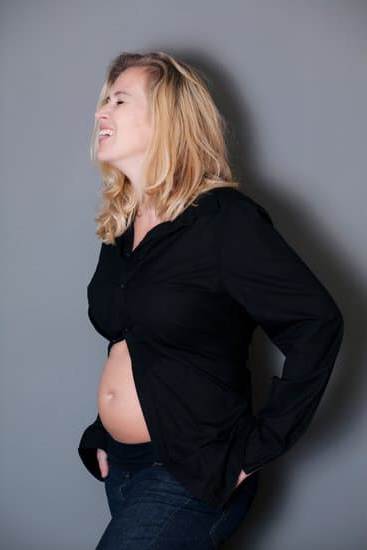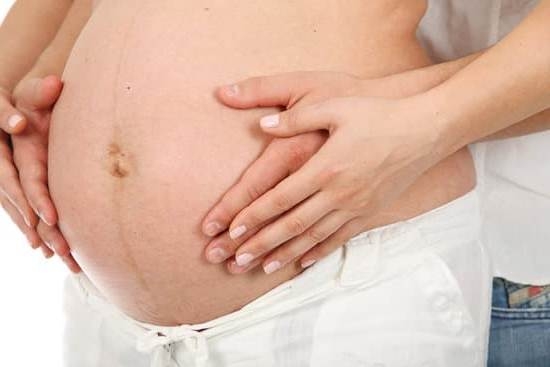Pregnancy is a miraculous journey that begins with subtle yet significant changes in a woman’s body. One of the most common questions for expectant mothers is: How early do you get pregnancy symptoms? Recognizing and understanding these early signs can greatly impact a woman’s pregnancy experience, from seeking proper medical care to preparing for the arrival of a new life.
As women navigate through the initial stages of pregnancy, they may start noticing various signs that indicate the beginning of this beautiful journey. These early symptoms can range from mild to noticeable and play a crucial role in confirming a suspected pregnancy. From physical changes to emotional shifts, each symptom holds valuable information about the developing life within.
Understanding the timeline from conception to implantation is essential in comprehending how soon pregnancy symptoms can manifest after fertilization occurs. As the fertilized egg begins its journey towards becoming implanted in the uterine lining, hormonal changes take place that set off a chain reaction leading to recognizable signs of pregnancy.
Early Signs of Pregnancy
Pregnancy symptoms can vary from woman to woman, but there are some common signs that may indicate early pregnancy. One of the earliest and most well-known signs is a missed period, which prompts many women to take a pregnancy test. However, there are other symptoms that can occur even before a missed period. These early signs may include fatigue, breast tenderness, nausea or morning sickness, frequent urination, and mood swings.
Nausea or morning sickness is a classic symptom that many pregnant women experience in the early stages of pregnancy. This can start as early as two weeks after conception and is often one of the first indicators of being pregnant. Additionally, heightened sense of smell, food aversions or cravings, and bloating are also common early signs of pregnancy. It’s important to note that not all women will experience these symptoms and some may have different indicators altogether.
Understanding your body and being aware of the potential early signs of pregnancy can help you determine if it’s time to take a pregnancy test. By knowing what to look out for and paying attention to any changes in your body, you may be able to detect pregnancy symptoms sooner rather than later.
Remember that every woman’s experience is unique, so if you suspect you might be pregnant but haven’t experienced typical symptoms yet, it’s recommended to consult with a healthcare provider for confirmation.
| Earliest Pregnancy Symptoms | Onset After Conception |
|---|---|
| Missed Period | 1-2 weeks |
| Nausea/Morning Sickness | 2 weeks |
| Breast Tenderness | 1-2 weeks |
Conception to Implantation
During the early stages of pregnancy, from conception to implantation, a series of complex biological processes take place within a woman’s body. Conception occurs when a sperm fertilizes an egg released during ovulation, leading to the formation of a zygote. The zygote then undergoes rapid cell division as it travels through the fallopian tube towards the uterus for implantation.
Implantation is a crucial stage in early pregnancy where the fertilized egg attaches itself to the lining of the uterus. This process triggers the release of hCG (human chorionic gonadotropin), a hormone that is responsible for supporting the developing embryo and signaling its presence to the mother’s body. It is around this time that some women may start experiencing early pregnancy symptoms, although they can vary from person to person.
Understanding the timeline from conception to implantation can provide insight into how early you can get pregnancy symptoms. While some women may notice signs as early as a week after conception, others may not experience any symptoms until several weeks into their pregnancy.
Factors such as individual hormonal levels, sensitivity, and overall health can influence when these symptoms manifest themselves. It is essential for women trying to conceive or those who suspect they may be pregnant to be aware of these early stages and be attentive to any changes happening in their bodies.
| Early Pregnancy Symptoms | Timeline |
|---|---|
| Implantation Bleeding | 6-12 days after conception |
| Extreme Fatigue | 1-2 weeks after conception |
| Nausea/Morning Sickness | 2-8 weeks after conception |
How Soon Can Pregnancy Symptoms Start After Conception?
Pregnancy symptoms can vary among women, with some experiencing signs as early as a week after conception. It’s important to note that every woman’s body is different, and pregnancy symptoms can manifest in various ways and at different times. Understanding the timeline of early pregnancy symptoms can help you navigate this exciting yet sometimes overwhelming experience. Here are some general guidelines on how soon pregnancy symptoms can start after conception:
- Week 1-2: During this time, fertilization occurs and the fertilized egg travels through the fallopian tube for implantation in the uterus. Some women may not even be aware they are pregnant during these early stages.
- Week 3-4: As the fertilized egg implants into the uterine lining, hormonal changes begin to take place. This is when some women may start noticing early signs of pregnancy such as breast tenderness, fatigue, or slight spotting.
- Week 5-6: By this time, a missed period may be a clear indication of pregnancy for many women. Nausea, frequent urination, and heightened sense of smell are also common symptoms during this stage.
It’s important to remember that each woman’s experience with pregnancy symptoms can differ based on various factors such as overall health, genetics, lifestyle habits, and more. While some may experience symptoms very early on after conception, others may not notice any significant changes until later in their first trimester.
If you suspect you might be pregnant or are actively trying to conceive, it is essential to listen to your body and pay attention to any unusual signs or changes. Consulting with a healthcare provider can help confirm whether these symptoms are indeed related to pregnancy.
Common Early Pregnancy Symptoms Explained
During the early stages of pregnancy, it is common for women to experience a variety of symptoms that can be indicative of pregnancy. These symptoms can vary from woman to woman and may also differ in intensity. Some of the most common early pregnancy symptoms include nausea, fatigue, breast tenderness, and frequent urination.
Nausea and Morning Sickness
One of the hallmark signs of early pregnancy is nausea, often referred to as morning sickness. This symptom can range from mild queasiness to severe vomiting, and typically occurs in the first trimester. Nausea is believed to be caused by the hormonal changes that take place during early pregnancy.
Fatigue and Exhaustion
Another common early pregnancy symptom is fatigue, which can be overwhelming for some women. The surge in progesterone levels can result in increased tiredness and sleepiness. It is essential for pregnant women experiencing fatigue to listen to their bodies and get plenty of rest.
Breast Changes
Breast tenderness or swelling is also a typical early sign of pregnancy. Hormonal fluctuations can lead to soreness or sensitivity in the breasts as well as changes in size. Some women may notice darkening of the areolas or prominent veins on their breasts too.
Understanding these common early pregnancy symptoms can help expectant mothers recognize the signs of pregnancy sooner. If you are wondering how early do you get pregnancy symptoms, being aware of these typical indicators will help you navigate this exciting time with more confidence and understanding. Remember that every woman’s experience is unique, so it’s important not to compare your symptoms with others but rather pay attention to what your body is telling you.
Factors That Influence the Onset of Pregnancy Symptoms
Pregnancy symptoms can vary greatly among women, and the timing of when they appear can be influenced by several factors. Understanding these influencing factors can help individuals better recognize and interpret the signs of early pregnancy.
Hormonal Changes
One of the primary factors that impact the onset of pregnancy symptoms is hormonal changes in a woman’s body. After conception, the body starts producing higher levels of hormones like estrogen and progesterone, which can trigger various physical changes. These hormonal fluctuations can lead to symptoms like breast tenderness, fatigue, nausea, and mood swings. The intensity and timing of these symptoms can differ from woman to woman.
Individual Differences
It’s essential to acknowledge that every woman’s body is unique, so the timing of pregnancy symptoms can vary widely. Some women may experience noticeable signs shortly after conception, while others may not notice any changes until a few weeks into their pregnancy. Factors like genetics, overall health, and lifestyle habits can play a role in how early or late symptoms appear.
Multiple Pregnancies
In cases where a woman is carrying multiples (such as twins or triplets), pregnancy symptoms may manifest earlier and be more pronounced. The increased levels of hormones produced in multiple pregnancies can lead to heightened fatigue, morning sickness, and other common signs of early pregnancy. Women expecting multiples should pay close attention to their bodies for any unusual or severe symptoms and seek medical advice promptly.
By considering these influencing factors on the onset of pregnancy symptoms, individuals trying to conceive or suspecting they may be pregnant gain a better understanding of what to expect during the early stages of pregnancy. It’s crucial to listen to your body, track any changes you notice carefully, and consult with healthcare providers for guidance on managing symptoms effectively.
Tips for Spotting Pregnancy Symptoms Early
Spotting pregnancy symptoms early can be an exciting yet anxious time for many women. The anticipation and uncertainty of whether or not you may be pregnant can lead to heightened awareness of any changes happening in your body. Here are some tips to help you recognize potential pregnancy symptoms sooner rather than later:
- Keep track of your menstrual cycle: Knowing when your period is due can help pinpoint if any delays or irregularities might indicate a possible pregnancy.
- Pay attention to physical changes: Stay attuned to any unusual sensations such as breast tenderness, fatigue, nausea, or food aversions that could signal early pregnancy.
- Consider taking note of subtle signs: Even slight changes like heightened sense of smell, mood swings, frequent urination, or increased vaginal discharge could potentially be early indicators of pregnancy.
It’s important to remember that every woman’s experience with early pregnancy symptoms can vary greatly. Some women may start noticing signs as early as a week after conception, while others may not experience any noticeable changes until several weeks into their pregnancy journey.
While it may be tempting to rush into taking a home pregnancy test at the first sign of suspicion, waiting until the timing is right can increase the accuracy of the results. Understanding your body and being patient during this crucial time can help you better navigate the emotional rollercoaster that often comes with early pregnancy detection.
When to Take a Pregnancy Test
Many women often wonder, “How early do you get pregnancy symptoms?” Understanding when to take a pregnancy test is crucial in determining if early pregnancy symptoms are indeed signs of pregnancy. While each woman’s body is different, knowing the right time to take a pregnancy test can help confirm suspicions early on.
In general, most early pregnancy symptoms can start as soon as one week after conception. The first sign of pregnancy is typically a missed period, but other common symptoms such as fatigue, nausea, breast tenderness, and frequent urination may also appear early on. Some women may even experience implantation bleeding or spotting around the time of their expected period.
It’s important to consider factors that can influence how early pregnancy symptoms appear. Every woman’s body reacts differently to pregnancy hormones, which can impact the timing and severity of symptoms. Additionally, lifestyle factors like stress levels and overall health can play a role in when symptoms manifest. Keeping track of your menstrual cycle and paying close attention to changes in your body can help you recognize early signs of pregnancy sooner.
Seeking Medical Advice
Confirming a pregnancy early is crucial for both the health of the mother and the developing fetus. Once you start experiencing early pregnancy symptoms, it is recommended to seek medical advice promptly. This will allow healthcare professionals to monitor your progress, offer guidance on prenatal care, and address any concerns or complications that may arise. Early confirmation also ensures that you can make informed decisions about your pregnancy journey.
One of the primary reasons to confirm a pregnancy early is to begin prenatal care as soon as possible. Prenatal care plays a critical role in ensuring a healthy pregnancy and delivery outcome. Healthcare providers can provide essential guidance on nutrition, prenatal vitamins, lifestyle changes, and necessary screenings or tests. By confirming your pregnancy early, you can establish a strong foundation for a healthy pregnancy journey.
In addition to prenatal care, confirming a pregnancy early allows healthcare providers to screen for any potential complications that may arise. Some women may be at higher risk for certain conditions or issues during pregnancy, such as gestational diabetes or preeclampsia.
Early detection and management of these conditions can lead to better outcomes for both the mother and baby. Therefore, seeking medical advice and confirming your pregnancy early is essential for ensuring a safe and healthy experience throughout this miraculous journey.
Conclusion
In conclusion, the early signs and symptoms of pregnancy are truly a miraculous aspect of the journey to motherhood. Understanding and recognizing these subtle indications can be an exciting time for many women, signaling the beginning of a new chapter in their lives. From the moment of conception to the onset of morning sickness or fatigue, each symptom serves as a reminder of the incredible process taking place within the body.
For many women, the question “how early do you get pregnancy symptoms” is one that sparks curiosity and anticipation. The ability to spot these signs early on can bring a sense of reassurance and joy, as well as prompt necessary lifestyle adjustments and medical care. Whether it’s tender breasts, food aversions, or mood swings, these symptoms play a pivotal role in alerting individuals to their changing bodies and preparing them for the path ahead.
Overall, while every woman’s experience with pregnancy symptoms may differ, one common thread remains – the wonder and awe surrounding the miracle of life. Paying attention to the signs, seeking guidance from healthcare providers when needed, and embracing this transformative time can help individuals navigate the complexities of early pregnancy with confidence and grace. So when those first indications appear, remember to cherish each moment as you embark on this beautiful journey towards motherhood.
Frequently Asked Questions
How Quickly Can Pregnancy Symptoms Start?
Pregnancy symptoms can start as early as one to two weeks after conception. However, some women may not experience any symptoms until a few weeks into their pregnancy. Common early signs include nausea, fatigue, breast tenderness, and increased urination.
What Symptoms Do You Have at 1 Week Pregnant?
At 1 week pregnant, most women may not even be aware that they are pregnant yet, as it is very early in the gestational period. Some may notice mild cramping or spotting due to implantation of the fertilized egg in the uterus lining. However, typically at this stage, there are no noticeable physical symptoms of pregnancy.
How Quickly Do I Know if I’m Pregnant?
The timing of when you know if you are pregnant can vary from woman to woman. For some women, they may experience early pregnancy symptoms like fatigue and nausea within a few weeks of conception.
A missed period is often the first clear indication that a woman might be pregnant. Taking a home pregnancy test around this time can give confirmation of pregnancy as well.

Welcome to my fertility blog. This is a space where I will be sharing my experiences as I navigate through the world of fertility treatments, as well as provide information and resources about fertility and pregnancy.





